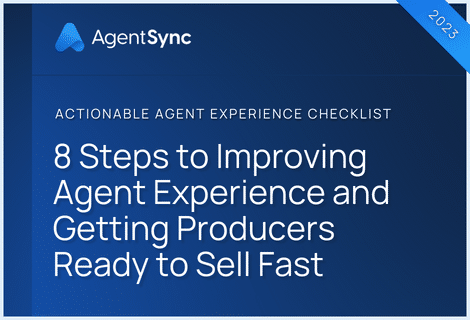

While working in the field day-to-day is enough for many insurance producers to stay up to date on the latest industry innovations, best practices, and changing regulations, continuing education (CE) requirements offer a more formalized way for regulators to get important information in front of insurance professionals.
What is continuing education in insurance?
Continuing education refers to the ongoing education requirements licensed insurance producers and dually licensed broker-dealers must complete every few years in order to keep their license in good standing. CE credits are usually offered in the form of classes led by industry leaders, and they help measure a producer’s effort to stay up-to-date in the insurance industry.
CE helps producers continue serving their clients both legally and ethically, even as new developments arise and reshape the business of insurance.
State variations in continuing education requirements
Every state requires its producers to meet their CE requirements by or before their license renewal date. However, the specific courses a producer needs to take, how many hours they need to complete, and how often they need to complete them depends on the state as well as the type of license.
For example, while most states require producers to complete 24 hours of CE credits every two years, South Dakota requires its producers to complete 10 hours of CE every two years for each line of authority they wish to sell.
Take this into consideration along with all the other state nuances, and things can get confusing fast. Luckily, producers generally don’t have to worry about completing the requirements for every state they operate in thanks to the NAIC CE Reciprocity agreement. With a few exceptions, the agreement makes it so that every state and territory recognizes every other’s CE requirements as sufficient for nonresidents. Meaning as long as a producer is up to date on their resident state’s CE requirements, any state where they have a nonresident insurance license also considers them good to go.
If you’re having a hard time tracking down specific state variations in CE requirements, AgentSync’s got you covered. Check out our state-by-state guide to continuing education.
Why is continuing education important in insurance?
We’ve said it before and we’ll say it again: You can’t spell compliance without CE. CE is vital to determining a producer’s ability to renew their existing resident insurance license, along with any nonresident licenses that depend on it. In fact, even in perpetual license states (states where producer licenses never expire) CE is still a mandatory requirement.
The bottom line is: If you want to legally sell insurance products, you need to stay on top of CE requirements.
What are the benefits of continuing education?
Although legal obligations might be top of the list of reasons to invest in CE, there are other benefits to staying on top of learning requirements. For insurance producers, completing CE requirements can feel like just another thing to check off their long list of tasks, but that’s no reason to write it off as a total time-suck.
The insurance industry is constantly evolving. CE is a powerful tool that producers can use to gain greater insight into emerging risks, new products, tech developments, regulatory changes, and more.
For agencies and MGAs, prioritizing producer CE means avoiding costly legal consequences like license suspension or revocation. And at a time when recruiting and retaining top insurance talent isn’t the easiest, organizations that support their producers’ CE efforts can stand out as valuable partners.
The value of automating continuing education workflows
We all know by now that without a valid license, a producer is unable to legally sell insurance products, but keeping up with producer licensing and CE requirements can be a complex and difficult process, especially when it’s done by hand.
Manual CE tracking is cumbersome and leaves a lot of room for human error. If a producer misses their CE deadline, they risk having to put their sales on hold or even losing business while they pause to get compliant. And if the missed deadline isn’t caught, agencies and MGAs risk losing money when their renewal submission is denied because a producer isn’t up to date on their learning requirements.
While you can’t take the manual work out of actually completing the courses, insurance agencies and MGAs can use automation to ensure CE is never a roadblock to their producer’s ability to sell. With AgentSync Learn, powered by WebCE, your admins can receive an at-a-glance view into which producers can renew according to their resident state’s timeline and CE requirements.
If managing compliance for multiple producers or broker-dealers across different states, lines of business, and license types is costing your more time and money than you’d like, talk to an AgentSync expert today.

